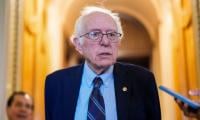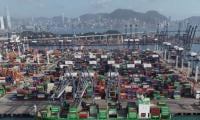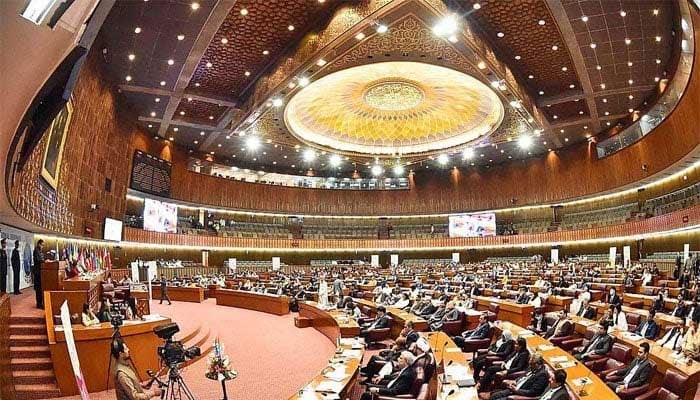None of the above
Election result will unfortunately now lead to a period of greater political polarization that will further undermine Pakistan’s economic fundamentals
Pakistan’s election has confounded pundits’ expectations about the outcome. The result was a clear indication that the status quo was no longer acceptable to a large section of voters who turned out in far greater numbers than anticipated.
Another lesson is that the use of Artificial Intelligence (AI) along with social media platforms like X and TikTok has a significant role in garnering votes and those political parties who are not adept in the use of emergent technologies are going to rue their lack of sophistication in this area.
The election result will unfortunately now lead to a period of greater political polarization that will further undermine Pakistan’s economic fundamentals.
The way the election was conducted was shrouded in controversy and scepticism from the public. Thus, candidates grappled with pre-poll shenanigans, from the arbitrary allocation of electoral symbols to the bewildering blackout of cellular phone services on the day of the election. Further, the delay in announcing results became a test of patience leaving television anchors wringing their hands in annoyance and even prompting bemused remarks on social media platforms by political leaders like Bilawal Bhutto Zardari.
The anomalies were not just minor blips but glaring inconsistencies that challenged the notion of free and fair elections. These need to be explained. Thus candidates that had been trailing badly on the basis of the total votes they had received compiled from a significant percentage of polling stations found themselves to be winners the next day thereby confounding the principles of statistical sampling theory. (Statistics is undeservedly the most unappreciated part of the math curriculum.)
The caretaker government, ostensibly the guardian of electoral sanctity, stumbled in its prime responsibility. This brings to the fore the existential quandary of such interim arrangements whose neutrality and efficiency remain perennially in question.
The Election Commission of Pakistan, entrusted with the mantle of fairness, instead became the epicenter of controversy, its credibility tarnished by the sluggish drip-feed of results, igniting rumors and fostering scepticism even among the most reserved television commentators.
The Foreign Office’s indignation at the withering international critique is wide off the mark since other countries have their own sources for monitoring elections including diplomatic dispatches and credible news sources. They only called a spade a spade, a gesture not of malice but of candid observation.
In any case, reputational damage has already vitiated the country’s international image. Virtually all international media outlets have decried the heavy-handed and opaque manner in which Pakistan’s election was conducted.
The fractured mandate that has emerged from the election points to the formation of a coalition government, a scenario fraught with its own set of challenges. The history of coalition politics in Pakistan, marked by political maneuvering and abrupt changes in political loyalties, suggests that we are in for a weak government catering to the lowest common denominator to satisfy all members of the coalition. A coalition government is not going to be one that can enact the bold structural reforms that the economy needs.
A coalition also means additional strain on the country’s finances because, in line with the usual practice that was evident in the sixteen months of the Pakistan Democratic Movement (PDM) government after the ouster of Imran Khan’s government in 2022, all parties in the multi-party coalition will expect to be rewarded with cabinet positions or advisory roles.
What we are likely to see is some sort of agreement in which the PML-N and the PPP take turns in having their leaders become the prime minister for a fixed term of 18-24 months with the job changing hands to accommodate the other party at the end of this period. Both major parties will in this manner get a bite of the cherry; the current political negotiation likely involves the issue of who gets to become prime minister first and which party gets to wait for their turn.
The crux of the dilemma facing Pakistan is not just the cyclical nature of its political dramas but the underlying resistance to substantive reforms. The nation stands again at a crossroads, its economy mired in the trappings of a rentier state, its political elites ensnared in a web of dynastic and vested interests that oppose change.
The challenges are manifold, from the need for land reform to the provision of family planning services, from the overhaul of the tax system to the rationalization of wealth distribution. Yet, each step towards reform appears to be a bridge too far – a tug-of-war between the forces of progress and the bastions of the status quo.
The possibility of land reform and the break-up of large feudal holdings, a transformative step undertaken by many East Asian nations that climbed the ladder of prosperity after World War II, remains a distant dream for Pakistan, thwarted by the powerful lobby of feudal landlords and the sacrosanct invocations of religion.
Similarly, the prospect of an agricultural income tax, a measure that would introduce a degree of fairness in the tax system and boost the tax-to-GDP ratio, is stymied by the entrenched interest of the landed class that holds sway in the corridors of power.
The entrenched lobby that feeds the zombie enterprises controlled by the government is another roadblock on the route to fiscal sanity.
In the urban sphere, resistance to tax reforms is found among small retailers and the owners of residential property leaving a large segment of the population outside the tax net.
Overall, the realization among the population at large is that higher taxes are needed but nobody wants to be the one who ends up paying. And everyone has a rationalization as to why they ought to be exempt.
In this milieu, the default policy measures, from indirect taxes on essential commodities to hikes in utility charges, remain the path of least resistance and are among the major reasons for the current economic and political imbroglio.
So, Pakistan finds itself in a Sisyphean struggle, oscillating between moments of crisis and the all-too-familiar visit, cap in hand, to the doors of the International Monetary Fund, each visit a stark reminder of the chronic instability afflicting the nation’s economic and political system.
The only thing we can be certain of is that the lines of disillusioned Pakistani youth angling for visas from foreign countries will get longer over time.
The writer is a group director at the Jang Group. He can be reached at: iqbal.hussain@janggroup.com.pk
-
 Eric Dane’s Friends Initiate GoFundMe To 'support' His Two Daughters After His Death At 53
Eric Dane’s Friends Initiate GoFundMe To 'support' His Two Daughters After His Death At 53 -
 Internet Erupts After Candace Owens Claims Elon Musk And Sam Altman Are ‘not Human’
Internet Erupts After Candace Owens Claims Elon Musk And Sam Altman Are ‘not Human’ -
 Will Princess Beatrice, Eugenie Stay In Contact With Andrew? Source Speaks Out
Will Princess Beatrice, Eugenie Stay In Contact With Andrew? Source Speaks Out -
 ‘AI Revolution Is Coming Fast & US Has No Clue,’ Bernie Sanders Warns Of Speed Of Disruption
‘AI Revolution Is Coming Fast & US Has No Clue,’ Bernie Sanders Warns Of Speed Of Disruption -
 Hong Kong Touts Stability,unique Trade Advantages As Trump’s Global Tariff Sparks Market Volatility
Hong Kong Touts Stability,unique Trade Advantages As Trump’s Global Tariff Sparks Market Volatility -
 ‘Miracle On Ice’ Redux? US Men Chase First Olympic Hockey Gold In 46 Years Against Canada
‘Miracle On Ice’ Redux? US Men Chase First Olympic Hockey Gold In 46 Years Against Canada -
 Friedrich Merz Heads To China For High Stakes Talks In An Effort To Reset Strained Trade Relations
Friedrich Merz Heads To China For High Stakes Talks In An Effort To Reset Strained Trade Relations -
 Astronauts Face Life Threatening Risk On Boeing Starliner, NASA Says
Astronauts Face Life Threatening Risk On Boeing Starliner, NASA Says -
 Hailey Bieber Reveals How Having Ovarian Cysts Is 'never Fun'
Hailey Bieber Reveals How Having Ovarian Cysts Is 'never Fun' -
 Kayla Nicole Looks Back On Travis Kelce Split, Calls It ‘right Person, Wrong Time’
Kayla Nicole Looks Back On Travis Kelce Split, Calls It ‘right Person, Wrong Time’ -
 Prince William And Kate Middleton Extend Support Message After Curling Team Reaches Olympic Gold Final
Prince William And Kate Middleton Extend Support Message After Curling Team Reaches Olympic Gold Final -
 Nvidia CEO Praises Elon Musk, Calls Him An ‘extraordinary Engineer'
Nvidia CEO Praises Elon Musk, Calls Him An ‘extraordinary Engineer' -
 Shia LaBeouf's Mugshot Released After Mardi Gras Arrest On Battery Allegations In New Orleans
Shia LaBeouf's Mugshot Released After Mardi Gras Arrest On Battery Allegations In New Orleans -
 Timothee Chalamet Felt '17 Again' After Reunion With 'Interstellar' Director Christopher Nolan
Timothee Chalamet Felt '17 Again' After Reunion With 'Interstellar' Director Christopher Nolan -
 Conan O'Brien Speaks First Time After Rob Reiner's Killing
Conan O'Brien Speaks First Time After Rob Reiner's Killing -
 Giant Tortoise Reintroduced To Island After Almost 200 Years
Giant Tortoise Reintroduced To Island After Almost 200 Years




